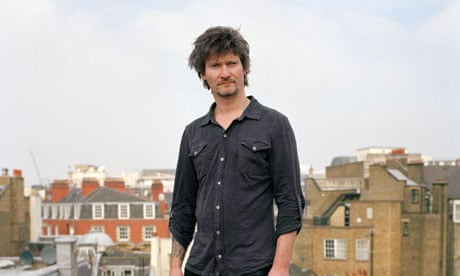Police spy Mark Kennedy traces his downfall to a startling discovery by his then girlfriend. In the summer of last year, they were abroad on holiday together when she came across his real passport in the glove compartment of his van, he has said.
She thought she had been going out for years with a committed environmental activist calling himself Mark Stone.
But here was his passport with a different name – Mark Kennedy. Once again he lied and claimed that it was one of many passports he had acquired while he was smuggling drugs, a key part of fake identity.
But the spy's big lie was about to be rumbled. Further investigation by her and her fellow political campaigners established that he was in fact an undercover policeman sent to infiltrate green and anti-war groups for seven years.
That discovery set in train a series of disclosures which have begun to lay bare a covert police operation to infiltrate political groups over the past four decades.
Now comes news of a planned lawsuit which could expose more of a particularly controversial part of that secret operation.
Eight women who say they unwittingly formed intimate long-term relationships with undercover policemen for up to nine years have started legal action against police chiefs.
Their planned lawsuit highlights heartbreaking stories of women who fell in love with men they believed could have been their soulmates.
But they have discovered that those men lied to them for years about their real identities, pasts and backgrounds – a fundamental part of anyone's existence.
They have described how they were betrayed in different ways, both political and personal.
In legal papers, they say the undercover policemen deceived them "by pretending that they were also political activists who shared their values, aims and broad political outlook".
Some of the men are said to have been married at the time and had children, but concealed this part of their life completely from them.
The women do not wish to be named as they want to prevent further intrusion into their privacy and will be asking a judge for anonymity during the legal proceedings. They consider that their private lives have already been grossly invaded in the most intimate way by the police spies.
Two however have previously talked to the Guardian.
One, Laura (not her real name), told her story as she wanted to warn police chiefs that their undercover operation "wrecks lives".
She was an environmental activist who had a relationship in 1999 and 2000 with "Jim Sutton", whom she believed was a fellow campaigner. They had what she called "a blissfully in-love relationship" until he suddenly left to go travelling in Turkey and South Africa.
She was left confused and spent more than a year trying to find him, travelling to South Africa. They met again in a chance encounter in 2001. By then, he had come off his undercover deployment and admitted that he was a policeman whose real name was Jim Boyling.
Laura says he deceived her again by claiming that he was going to quit his job, but never did. She believes that his undercover training enabled him to deceive her again at a time when she was in a state of shock and trauma.
On Friday she said he claimed that "he was a turncoat, had been converted to the cause but was at risk from his employers, in order to create further deceit about his intentions, further entrapping me deeper into a relationship that I would never have entered in the first place".
"The responsibility for the lasting damage this has caused me and our children goes right back to the undercover operation by the Metropolitan police and the training they gave him in the art of duplicity." They divorced in 2008.
Boyling denied any wrongdoing, adding that – as the lawyers for the women "have indicated they intend to bring an action against the Metropolitan police – the proper venue to determine whether there is any truth in the allegations is the court and not the media".
Another, Jenny (also not her real name), had an 18-month relationship in the 1980s with a man who called himself Bob Robinson. But in reality he was Bob Lambert, an undercover policeman tasked with infiltrating animal rights and environmental groups.
She fell deeply in love with him, but he said he had to flee to Spain as Special Branch wanted to arrest him for his political activities. She was heartbroken, but only discovered his true identity this year.
After his undercover work was exposed in October, he apologised to her for tricking her into having the relationship with him, admitting that it was part of an elaborate attempt to make his fake identity more credible. She had not been politically active.
In the legal papers, Harriet Wistrich, the lawyer from the Birnberg Peirce law firm representing the women, says that in the cases of four women, the relationships ended when the men suddenly disappeared.
The men, she says, claimed "variously that they were depressed, that they needed to sort their heads out, that they needed to go on the run from the police, that they wanted a period to go travelling".
The true reason, she says, is that the police spies had been "ordered by their superiors to end the undercover operation".
The depth and breath of the allegations, stretching from 1987 to 2010, directly challenge the claim by police chiefs that their undercover officers are not "under any circumstances" permitted to sleep with the people they are spying on.
Jon Murphy, the chief constable of Merseyside and the police chiefs' spokesman on the issue, told the Guardian in January that it was "never acceptable" and was "grossly unprofessional".
He said: "It is a diversion from what they are there to do. It is morally wrong because people have been put there to do a particular task and people have got trust in them."
More recently, Murphy has said that undercover officers "never" form relationships with the targets of surveillance in order to bolster their fake identity.
Last month, Murphy said: "The reality is from time to time, people will develop relationships that go beyond what they should. It is the responsibility of supervisors to monitor closely and ensure that does not happen."
But the mounting evidence suggests that for years, police chiefs have known about the sexual relationships and either approved of them or turned a blind eye, preferring not to question, for example, where their officers were getting their information from.
Kennedy says he did not tell his superiors about his relationship with one of the women, although he says it was "unrealistic" to believe that they did not know.
Pete Black, an undercover officer who infiltrated anti-racist groups in the 1990s, has said that sex was widely used as a technique to blend in and gather intelligence.
He has described an informal code that the spies should not fall in love with the women – or allow the women to fall in love with them.
In the legal papers, the men are accused of spying on a wide range of anti-capitalist, anti-war and animal rights groups as well as environmental campaigns such as Reclaim the Streets and Earth First.

